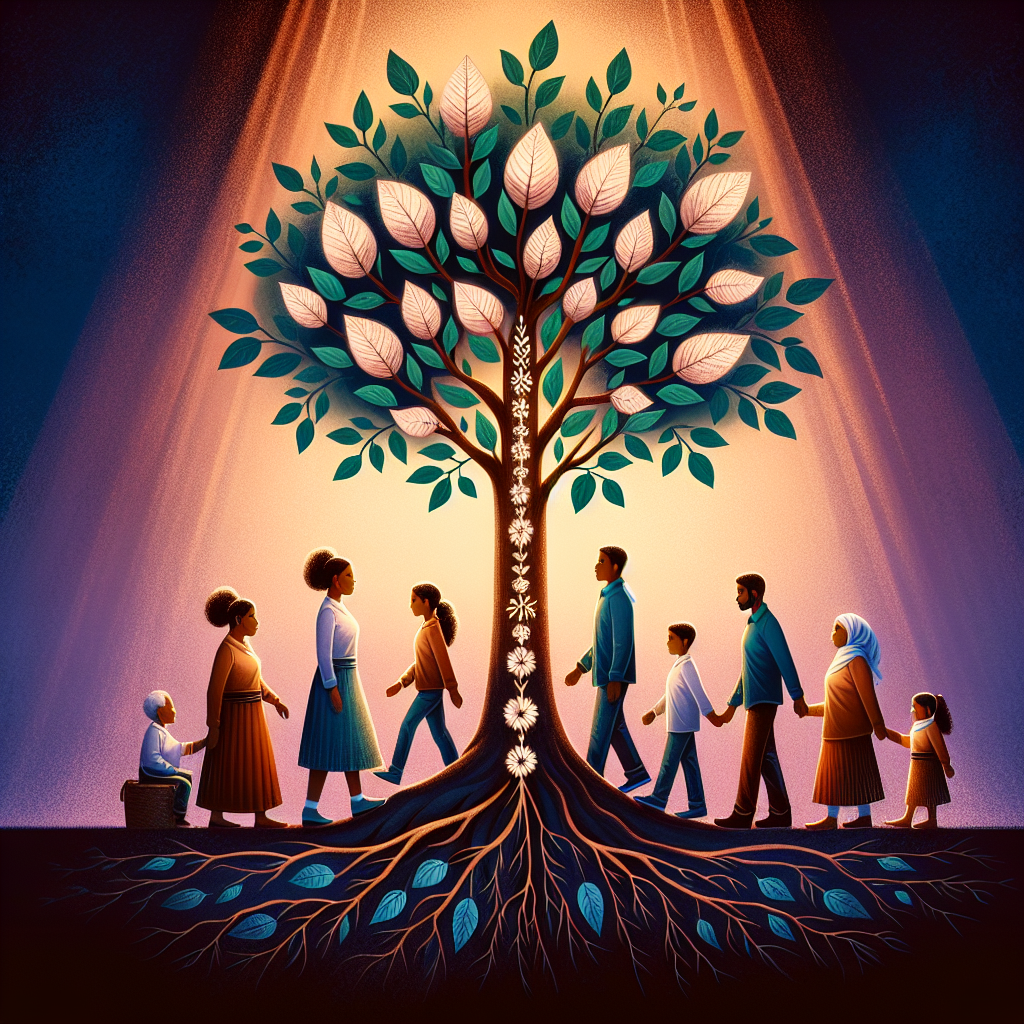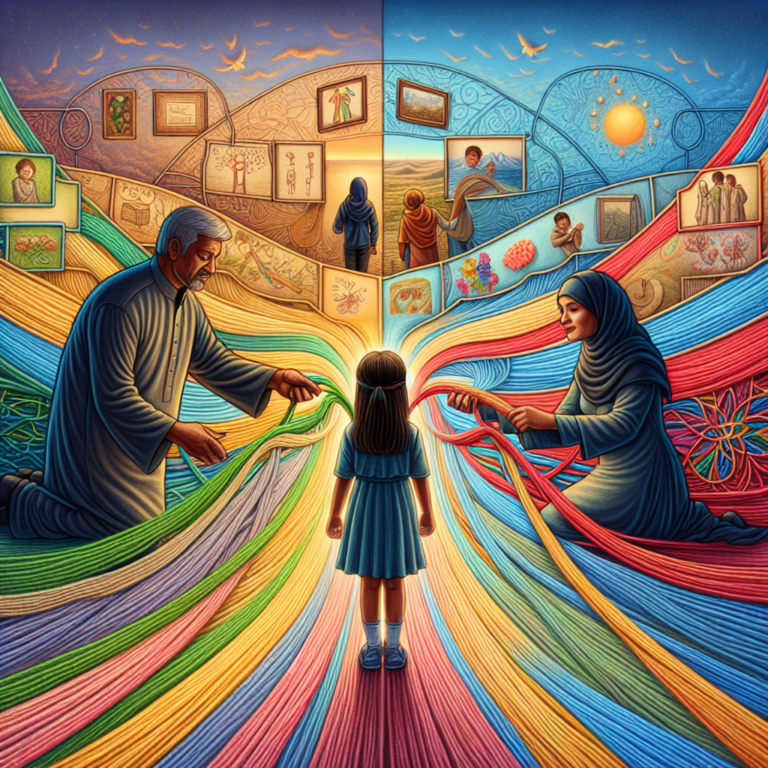Generational family karma involves the inherited patterns, beliefs, and behaviors that are passed down through the family lineage. This concept is deeply rooted in spiritual and psychological traditions and highlights how family dynamics shape an individual’s experiences, choices, and ultimately their life path. Understanding these patterns can empower individuals to break free from negative cycles, leading to healthier relationships and a more fulfilling life.
What is Generational Family Karma?
Generational family karma refers to the notion that each generation carries the emotional, spiritual, and psychological legacy of the past. This transmission is seen in various ways:
- Patterns of behavior: Actions and reactions that are replicated through generations.
- Belief systems: Values and beliefs that are upheld or challenged within the family.
- Emotional legacies: Unresolved traumas and experiences that impact future generations.
This concept derives from various spiritual traditions, including Hinduism, Buddhism, and modern psychology. The intimate interplay between generations means that the choices and unresolved issues of our ancestors can influence our lives, often unconsciously.
The Historical Context of Family Karma
The history of family karma can be traced back to ancient philosophies that emphasize the interconnectedness of all beings. In many spiritual beliefs, the idea of karma represents the law of cause and effect, suggesting that our actions have repercussions that extend beyond our lifetime. This idea is expanded in the context of family karma, which holds that:
- Each family embodies a unique energy that is influenced by ancestral histories.
- The collective experiences of the family can affect individual family members differently.
- The family unit acts as a dynamic system, where each member contributes to the shared legacy.
How Generational Karma Manifests
Generational karma can manifest in various ways, often playing out through relational, emotional, and experiential aspects of life. Here are some common manifestations:
1. Relational Patterns
Many people find themselves repeating the same relationship dynamics witnessed in their families. For instance, an individual raised in a household marked by conflict may struggle with communication in their own relationships or may unconsciously replicate patterns of dysfunction. Recognizing these inherited relational scripts is the first step in altering them.
2. Emotional Challenges
Emotional patterns, especially those related to trauma, grief, or anxiety, can be passed down through generations. For example, a family that has experienced significant loss may develop a collective mindset around grief, leading future generations to feel perpetually burdened by similar emotions. Healing these emotional wounds is vital for breaking the cycle.
3. Health Patterns
Some health issues have genetic components, but other conditions are also influenced by familial behavior and lifestyle choices. Individuals may inherit not only physical health predispositions but also mental health challenges, such as anxiety or depression, particularly if coping mechanisms were modeled through generations.
Ways to Work Through Generational Family Karma
Understanding generational karma opens pathways for personal development and healing. Here are practical steps one can take to navigate and address family karma:
1. Acknowledge Family Legacy
The first step is awareness. Reflect on the patterns in your family history. Identify any recurring themes, such as divorce, addiction, poverty, or loss. Journaling can be an effective method to document these patterns and their emotional impacts.
2. Engage in Open Dialogue
Discussing family history with relatives can provide insights into inherited patterns. Engaging in open conversations helps to demystify longstanding family issues. It can also facilitate healing as family members share their perspectives and experiences.
3. Seek Professional Guidance
Working with a therapist or counselor who specializes in generational trauma or family dynamics can be invaluable. They can provide tools and strategies to navigate complex emotions and behaviors connected to family karma.
4. Set Intentions for Change
Shifting the trajectory of family karma requires conscious decision-making. Set specific intentions to change inherited behaviors. For instance, if conflict resolution wasn’t taught, you might commit to learning and practicing effective communication skills in your relationships.
5. Healing Practices
Engaging in healing practices such as meditation, yoga, or energy work can facilitate personal transformation and release negative family patterns. These practices foster self-awareness and promote emotional healing.
The Role of Forgiveness
Forgiveness plays a crucial role in healing generational family karma. Holding onto resentment and anger towards past family members keeps negative cycles alive. Here’s how to approach forgiveness:
- Understand the Context: Recognizing that previous generations acted based on their circumstances can foster empathy.
- Letting Go: Allowing yourself to release negative feelings paves the way for personal freedom.
- Transformative Dialogue: If possible, have compassionate conversations with family members to express feelings and seek understanding.
Transcending Generational Patterns
Transcending generational family karma is a journey of growth and self-discovery. Consider these methods for breaking free from historical patterns:
1. Cultivating Self-Awareness
Self-awareness enables individuals to identify and change habitual behaviors inherited from previous generations. Mindfulness practices and personal introspection deepen understanding of one’s own emotional responses and triggers.
2. Establishing New Traditions
Creating new family traditions allows you to establish a positive legacy that can be passed down. Whether through shared rituals, celebrations, or values, these traditions can foster connection and healthy interactions.
3. Building Support Networks
Engaging with communities, whether through friends, support groups, or spiritual circles, reinforces personal growth. Surrounding yourself with people who understand the process of breaking generational patterns can provide encouragement and motivation.
Conclusion
Understanding and addressing generational family karma is an ongoing journey that provides valuable insights into one’s life. By acknowledging inherited patterns and taking steps toward healing and transformation, individuals can break free from the constraints of their family history. Each person’s journey is distinct, but embracing self-awareness, compassion, and the desire for change can lead to a healthier, more fulfilling future. Through this journey, individuals can cultivate a new legacy, resulting in positive ripples that can impact future generations.
FAQs
What is the difference between karma and generational karma?
Karma generally refers to the law of cause and effect regarding individual actions, while generational karma relates to the inherited emotional and behavioral patterns passed down through family lineages.
Can generational karma be broken?
Yes, generational karma can be broken through conscious effort, therapy, self-awareness, and implementing new behaviors that foster healing and growth.
How can I identify generational family karma in my life?
Reflecting on family history, recognizing repeated patterns in relationships, emotional responses, and engaging in discussions with family members can help identify generational karma.
Is professional help necessary to work through generational karma?
While it is not necessary for everyone, seeking professional help can provide support, guidance, and tools for understanding and breaking challenging generational patterns.
How does cultural context influence generational family karma?
Cultural context significantly influences generational family karma as it shapes values, belief systems, and family dynamics. Different cultures have varying ways of processing family history, conflict, and trauma.
, Sure! What kind of prompt are you looking for? It could be for creative writing, artistic inspiration, a discussion topic, or something else entirely. Let me know what you need!, #Understanding #Generational #Family #Karma #Means, #Understanding #Generational #Family #Karma #Means, 1734038122, understanding-generational-family-karma-what-it-means-for-you




